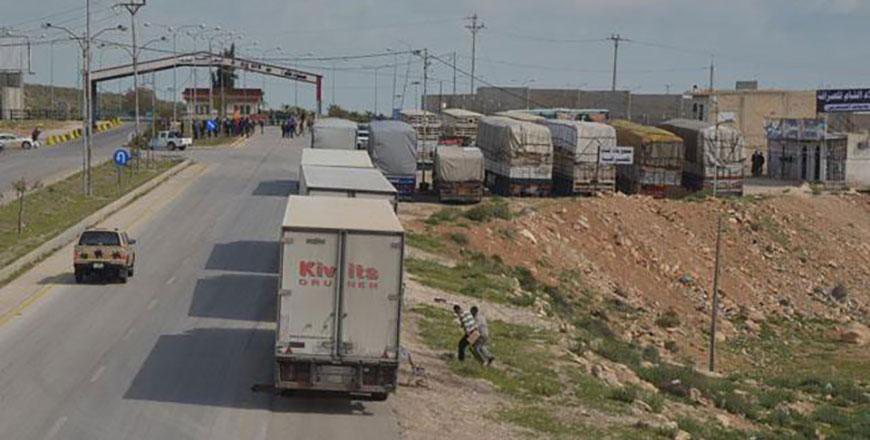AMMAN — The Jordan Strategy Forum(JSF) released a policy paper on Monday titled "Prospects for Trade and Economic Cooperation between Jordan and Syria: A Path Toward Shared Arab Integration."
The paper highlighted the economic and trade relations between Jordan and Syria and their role in fostering broader Arab cooperation through trade exchange, the transportation sector, and identifying the relative advantages of both countries’ exports.
The JSFpointed out the modest level of intra-Arab trade, valued at approximately $405.3 billion, representing just 14.9 per cent of total Arab foreign trade.
In comparison, intra-EU trade accounts for 58 per cent of the EU's total foreign trade.
The forum emphasized that bilateral partnerships could be the foundation for achieving comprehensive Arab integration and sustainable regional development.
Within the context of economic and trade relations between Jordan and Syria, the forum noted that trade between the two nations peaked during the 2004-2011 period, exceeding $500 million in some years. However, it declined to $182 million in 2023 due to political instability affecting the Syrian economy.
The JSFalso highlighted a sharp decrease in Jordanian exports to Syria, which fell from 5.4 per cent of total national exports in 2007 to less than 1 per cent in 2023. Similarly, Jordan's imports from Syria dropped from 2.7 per cent to 0.2 per cent of total imports over the same period.
The paper underscored the geographical significance of Jordan and Syria as critical land corridors for exports destined for Asia, particularly Gulf countries, from Europe and Turkey.
The JSFexplained that Jordan could play a pivotal role in Syria's reconstruction efforts due to its geographical proximity and expertise in various sectors supporting the rebuilding process.
The paper concluded by recommending the establishment of partnership agreements and memoranda of understanding between Jordan and Syria to strengthen their trade and economic relations.
The forum also called for a review of decisions restricting the import of certain products, setting specific quotas for imports and exports, and imposing conditions on manufacturers and traders on both sides to facilitate trade.
It stressed the importance of helping Syria restore its customs system, the ASYCUDA system, and automate transportation services to speed up the movement of goods between the two countries.
The JSF also highlighted the need to revise customs and transit fees imposed on exports from both sides.
It urged the activation of the 1999 Jordan-Syria land transport agreement to standardize fees on freight trucks (direct and transit) to a fixed rate, regardless of distance or weight, as was previously practiced.
The forum also recommended assisting Syria in reopening Bab al-Hawa border crossing (Syria-Turkey crossing) and ensuring the safe passage of freight trucks to bolster trade.
